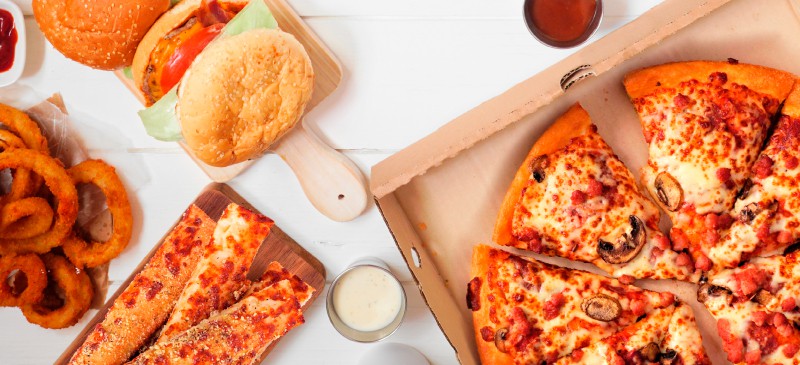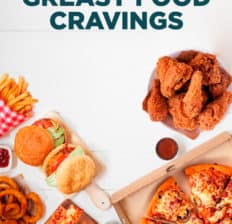This Dr. Axe content is medically reviewed or fact checked to ensure factually accurate information.
With strict editorial sourcing guidelines, we only link to academic research institutions, reputable media sites and, when research is available, medically peer-reviewed studies. Note that the numbers in parentheses (1, 2, etc.) are clickable links to these studies.
The information in our articles is NOT intended to replace a one-on-one relationship with a qualified health care professional and is not intended as medical advice.
This article is based on scientific evidence, written by experts and fact checked by our trained editorial staff. Note that the numbers in parentheses (1, 2, etc.) are clickable links to medically peer-reviewed studies.
Our team includes licensed nutritionists and dietitians, certified health education specialists, as well as certified strength and conditioning specialists, personal trainers and corrective exercise specialists. Our team aims to be not only thorough with its research, but also objective and unbiased.
The information in our articles is NOT intended to replace a one-on-one relationship with a qualified health care professional and is not intended as medical advice.
7 Reasons to Avoid Greasy Food + How to Prepare Your Favorites Without Excess Oil
February 2, 2022

What makes a food greasy? The short answer is excess oil, and if you eat greasy food from a restaurant or out of a package, chances are the healthy kinds of oils that aren’t used.
Greasy food is typically high in calories, unhealthy fats, refined carbohydrates and salt. These foods are usually enjoyable to eat and even called “comfort foods,” but what do they do to your body (and mind)?
The truth is that eating greasy food isn’t ideal for your health, but there are ways to reduce the grease while allowing you to enjoy the same foods.
Top 7 Reasons to Avoid Greasy Food
1. Digestive Issues
The fats present in greasy foods may wreak havoc on your digestive system, leaving you feeling bloated, gassy and with an upset stomach. Research indicates that fats are digested slowly and require the work of digestive enzymes and juices to break them down.
The consumption of excess fats can really slow down the process, leading to issues with regularity and discomfort.
2. Weight Gain
Greasy foods are often high in calories and high amounts of unhealthy fats, like trans fats that have been linked to weight gain and obesity.
Studies show that high consumption of fried, greasy foods is related to a higher risk of weight gain. This is especially true when vegetable oils are used, which increase the levels of trans fats and saturated fats in the food.
3. Poor Gut Health
A study published in Clinical Nutrition found that diets high in saturated fats can exert negative effects on the gut microbiota and are associated with unhealthy metabolic states.
What happens when our gut health is impacted by unhealthy fats? You may notice issues related to digestion, low mood, low energy and even immune system health.
4. Brain Fog and Mood Changes
What happens after you eat a greasy meal? Chances are that you feel slower and maybe in a bit of a mood.
It turns out that eating greasy foods can actually impact your concentration and brain function. This is because eating a diet high in trans fats can increase inflammation and cause conditions that harm cognitive function, like poor gut health.
5. Risk of Heart Conditions
Eating fried, greasy foods has been linked to heart disease. A study published in BMJ that evaluated over 100,000 postmenopausal women ages 50–79 found that frequent consumption of fried foods, especially fried chicken and fish, was associated with a higher risk of all cause and cardiovascular mortality in American women.
Another study published in Nutrients indicates that eating greasy foods four or more times per week leads to a higher risk of developing chronic disease, including coronary artery disease, heart failure, diabetes and hypertension.
6. Risk of Diabetes
Eating foods that are often fried and greasy has been linked to a rise in type 2 diabetes. That’s because these foods can increase inflammation, weight gain and issues with blood sugar control.
Not only are these foods fried in unhealthy oils, but they usually contain refined carbohydrates. When greasy foods are eaten in combination with sugary drinks and excess salt, you may really have a problem.
In a prospective study that involved over 70,000 women and 40,000 men, researchers suggest that frequent consumption of fried foods (eating them one to three times per week) was significantly associated with type 2 diabetes and increased the risk of disease by 15 percent.
A 2017 systematic literature review and meta-analysis published in the Journal of Nutrition found that foods often paired with greasy ones, like refined grains, sugar-sweetened drinks and processed meats, are significantly associated with type 2 diabetes risk.
7. Skin Issues
Research has shown that dietary choices impact skin aging and health. Eating lots of greasy foods over time may impact the health and appearance of your skin.
Eating high amounts of unhealthy fats can mess with bacteria balance in the gut and hormone balance, which can cause breakouts and other skin issues.
How to Avoid Greasy Foods
Let’s start with how greasy foods are made. They are typically fried in vegetable oil, and that grease is excess oil that soaks through the food.
Instead of frying foods, there are healthier preparation options, including:
- Steaming: You don’t need any oil to steam foods — you just need water. This is a healthy way to cook veggies and fish. Simply add seasoning, lemon and a small amount of oil, like olive, coconut or avocado oil.
- Sautéing: Another healthy way to cook vegetables and meats. Try making stir-fry or a veggie scramble with a touch of olive oil or high-quality butter.
- Baking: Baking foods in the oven works as a great alternative to frying because you can still get a crispy texture without the need for unhealthy oils.
- Grilling: Cooking meats on the grill is a healthier option than frying them, and you can add corn on the cob and fresh vegetables, too.
- Air frying: Air frying is a great way to cook foods and get a similar taste to standard frying, except you use less than half the amount of oil. Air fryers move hot air around the food and provide a great crispy texture, too.
If you’re a fan of greasy foods and don’t want to avoid eating your favorites, there may be ways to make them a bit healthier. Here are some common greasy, fatty foods and how to prepare them when eating a healthy diet:
- Potato Chips: There are other crunchy snack options besides potato chips. Try baked pita dipped in hummus, kale chips with sea salt or baked tortillas with shredded cheddar cheese on top.
- French Fries: Making your own fries in the oven is an excellent side dish. You can use sweet potato wedges, white potatoes, carrots and other root vegetables. Add a pinch of sea salt and pepper for flavor.
- Burgers: You don’t have to wait for a restaurant or fast food establishment to have a burger. Use high-quality grass-fed beef to make your own at home. Add lettuce, tomato, pickles and all of your favorite toppings, and use sourdough bread. Try this avocado bison burger recipe.
- Fried chicken: There are plenty of options when cooking chicken, like baking it, grilling it, or even chopping it and sautéing in smaller amounts of oil.
- Doughnuts: Have you tried baking doughnuts? Similar to a soft cake in the shape of a donut, baked doughnuts are really good, and they require far less oil to prepare.
- Pizza: There’s something pretty special about making your own pizza at home, and you even have healthier crust options, like cauliflower or whole wheat crust. Add your favorite toppings, and control the amount of oil you use to keep it healthy. Try this easy Margherita pizza recipe.
What to Do If You Do Consume Greasy Food
1. Eat Probiotics
One of the best ways to boost digestive and gut heath is to eat fermented foods and take a high-quality probiotic supplement. The good bacteria in probiotics live in your digestive tract and help kill off the bad bacteria that triggers problems like upset stomach, trouble absorbing nutrients and issues with regularity.
A review published in the European Journal of Clinical Nutrition found that probiotic consumption can improve gastrointestinal health and gut microbiota.
If you eat greasy foods, pair them with natural probiotic foods, like kimchi, yogurt, sauerkraut and kombucha.
2. Add Digestive Soothing Herbs
Nature provides herbs and spices that help soothe digestive complaints that result from eating greasy foods. Try drinking ginger or dandelion tea after eating your meal, or add fresh parsley and oregano to your meal.
Research indicates that ginger, for example, is effective in improving digestive health, and it works to reduce inflammation.
3. Keep Portions Small
If you’re going to eat greasy foods, perhaps as your once in a while treat to yourself, then keep the portions small. This allows your digestive system to do its work without getting overloaded, and you won’t deal with bloating or upset stomach.
Conclusion
- We all enjoy the comfort and taste of greasy food but may not realize how eating it frequently can impact your health.
- Greasy food can cause digestive issues; increased risk of cardiovascular disease, type 2 diabetes and obesity; skin issues; and moodiness.
- It’s easy to reduce your greasy food intake and prepare your favorites in healthier ways, like baking, sautéing, grilling and using an air fryer.
- If you are going to treat yourself with a greasy food, pair it with probiotic foods and digestion-soothing herbs, and keep your portions small.




